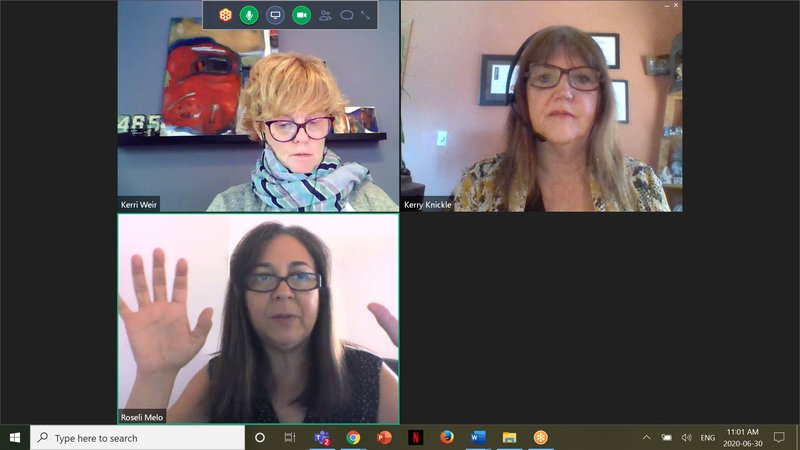
With no indication of physical distancing measures changing in the near future, the Centre for the Advancement of Simulation Education at the Michener Institute of Education at UHN is finding innovative ways to safely deliver the summer simulation semester.
Michener’s Communication course, which runs yearly in March for many internal programs, is designed as an interprofessional in-person opportunity for students to explore their communication skills and engage with actors trained to portray authentic roles, followed by feedback and facilitated discussion.
“We believed there was an opportunity to further develop the content covered in this course, building in additional complexity for the students as preparation for entry to practice,” says Nancy McNaughton, Education Scholar, Centre for Learning, Innovation and Simulation. “The difference and challenge was in developing and designing this solely as an online offering while maintaining keen student interest.”
Summer semester typically runs from early May to the end of July. With approval and support from faculty and program Chairs, a four-day framework for “Entry to Practice Communication” was conceived and designed, drawing in part from existing content expertise and eliciting involvement from opinion leaders and professionals on the front lines as presenters.
“Course co-lead Nancy and I were technologically unprepared for this huge endeavor, despite having designed the program and being familiar with our own content areas,” says Kerry Knickle, Director, Simulated Participant Program. “It cannot be overstated how instrumental the Michener team was in supporting the course organization, administration and technology requirements.”
It was an all hands-on deck effort involving not only the Centre for Learning, Innovation and Simulation, but also Michener’s Applied Educational Research team and the Learning Resource Centre.
Live simulation delivered in an online format proved to be a new experience for many. The trained actors (simulated participants) were skilled and prepared, adjusting to the technical requirements with relative ease, and facilitation of each interaction occurred with unexpected similarity to the live process.
“As instructors, we saw definite community building and developed a palpable sense of our audience, something we could never have imagined, each of us coming from a culture of face-to-face experiential teaching and learning,” says Kerry.
144 students across Chiropody, Radiation Therapy, Radiation Technology and Respiratory Therapy are currently enrolled in the course. Employing the Chat, Hands Up and Text functions, they created a community of practice, supporting each other, demonstrating the same communication skills, feedback and compassionate behaviours that they had acquired through the course materials.
“A sudden shift to online learning posed new challenges and great uncertainty for Respiratory Therapy students,” says Alex Connolly, Respiratory Therapy student. “Nonetheless, engaging with simulated patients over video conferencing has been invaluable for us to improve our communication and interpersonal skills.”